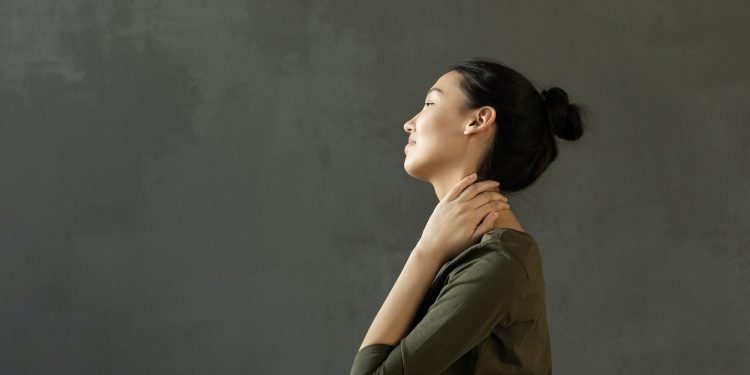by Dr. Jeremy Schmoe
The connections between the cervical spine and post-concussion symptoms are real, and determining whether a patient’s symptoms are from a brain injury or an injury to the cervical spine is complicated because the symptoms overlap.
After a series of whiplash skiing concussions, I started to develop multiple symptoms within weeks of my last injury in 2011. I didn’t experience severe symptoms right away, “just” a headache, fatigue, and neck pain, which decreased over a week. It wasn’t until a few weeks later when I rode up an elevator and felt extremely dizzy when I got off that I knew something was not right with my brain. The episodes became more frequent and I developed symptoms while walking, riding elevators, driving and doing anything where I was carrying different amounts of weight. I realize now that my brain was not interpreting gravitational loads correctly.
Manual therapy on my neck helped with my headache but I still felt “off.” I was going to chiropractic school at the time and did not want to make a big deal of it. I just pressed on with life like many of my patients do. Who has time to slow down, right?
Then I started to feel dizzy 24/7, experienced sensations of rocking when my eyes were closed, developed tremors in my hands, a sensation of inner shaking in my core, out-of- body sensations, feelings of floating, weakness in my legs, neck pain, stiffness, and a headache located deep inside my head. The headaches were by far the worst and affected my ability to function. It was not fun feeling out of balance but when you are in pain everything is amplified.
At times I felt like I was about to black out and like I was rolling in space over to the right side. I would be overstimulated by visual motion and driving became difficult. Elevators and escalators would cause me to feel unbalanced and like I was getting pulled into the ground. Anxiety started to kick in and I started losing weight and developed insomnia.
Does this sound like brain injury? Or cervical spine injury? Both? What was the cause of the headaches?
Based on my clinical experience I believe I suffered trauma to my brain and my cervical spine. My headaches had both a cervicogenic component as well as visual/vestibular and autonomic.
There is a lot of overlap centrally in the brainstem and upper cervical spinal cord that can cause headaches related to the neck. When a headache is solely from the neck, manual therapy may help.
Some patients may find that manual therapy to the neck helps for a short period but stiffness returns. In many of these cases a sensory mismatch occurs with the neck, vestibular and visual systems. Something is off centrally causing the neck to stiffen. This occurred in my case. Upon examination, I had excessive eye movement in the dark, indicative of a central vestibular processing issue. Until addressing it rehabilitation my neck would become stiff within a few hours of therapy. Sound familiar?
A headache may come from both the cervical spine and visual/vestibular mismatch, which is why an extensive examination of the structural integrity of the neck and the other sensory systems is very important. The central vestibular dysfunction may need to be dealt with first is some cases before addressing the cervical spine with manual therapy. There are so many connections in the brain between the eyes, spine, and vestibular system that must be assessed to unravel the complexity.
If headaches that seem to be related to your neck are not improving, consider getting an in-depth examination of the connections between the sensory systems of the brain. Even though you may feel like it is just an issue with the neck, due to the complexity of the cervical spine connections with the brain addressing both can help you move in the right direction.











